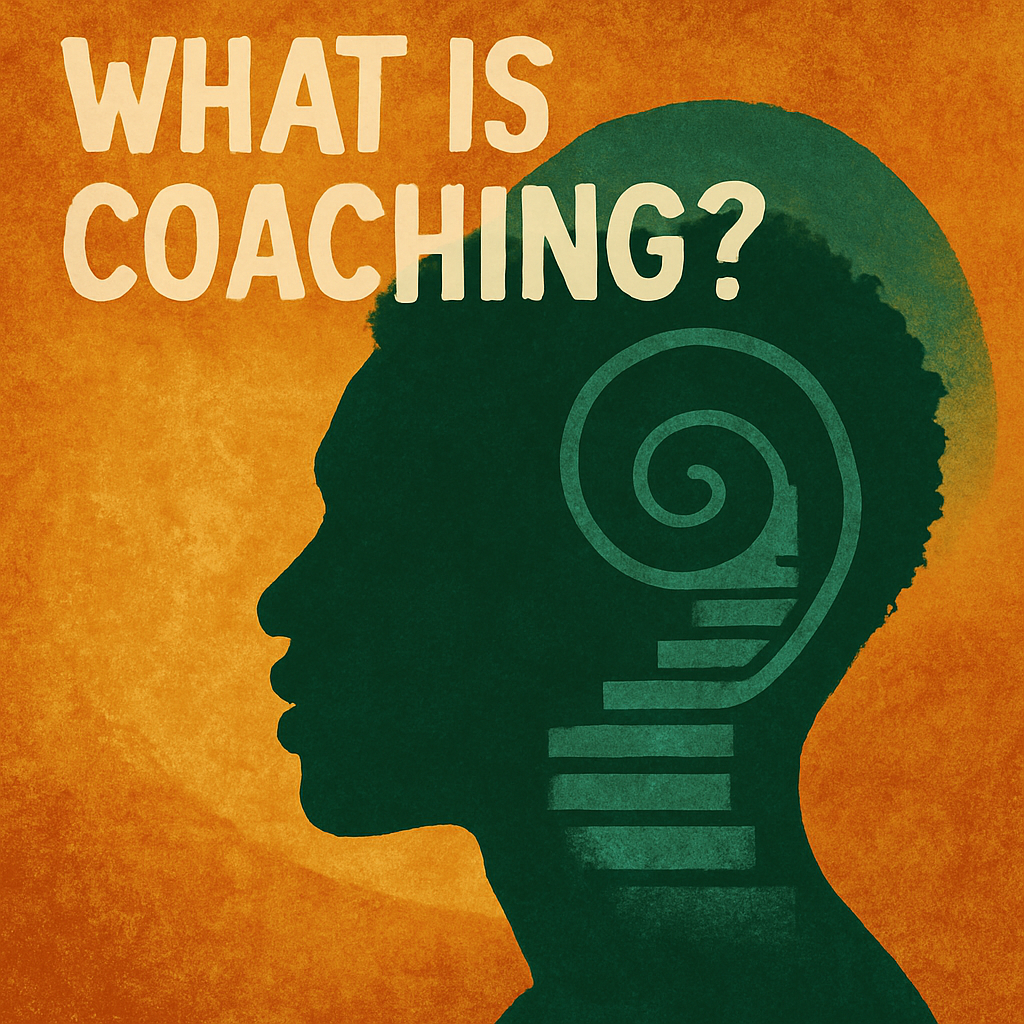The Abundant Way: How We Coach and Why It Matters
“Okay, so you’re a coach, right?”
Yes.
“And you do college and career coaching?”
Not exactly.
“Life coaching?”
Not quite.
“Then what the heck do you coach on?”
Well—let me tell you.
At Abundant Stories, we are coaches.
But when we say coaching, we mean something deeper:
We mean guiding. Witnessing. Holding space for becoming.
We don’t coach you toward a checklist.
We don’t coach you toward someone else’s version of success.
We coach you toward yourself. Toward truth. Toward a life you actually want to live.
Our approach is grounded in growth, healing, and storytelling. Yes, we support academic wins, career moves, and college admissions—but we also go deeper.
We help you make sense of your story, your strengths, and your next step forward.
Because coaching isn't about fitting into a mold.
It's about making space to build what you need, in your language, at your pace.
🔥 What I Learned From My Own Story
When I look back at my own journey, I realize how much of it was shaped by other people’s plans.
Family. Teachers. Friends. Society.
Everyone had an idea of what my life should look like.
But who asked me:
"What do you want your life to feel like?"
"What would abundance mean to you—not in someone else’s language, but in your own?"
No one.
Those were the questions I didn’t know I was allowed to ask.
Not until adulthood.
Not until I had already worn too many masks.
And now, I see it happening all the time:
Young people moving on conveyor belts of expectation—rarely given the space to ask what they actually want.
🧠 Coaching, As We See It
To us, coaching isn’t about fixing you.
It’s about walking with you as you ask the real questions, define your own values, and build a life that feels like yours.
We guide you through the messy and the clear.
We help you name the dreams you were taught to bury.
We hold up a mirror to the brilliance you already carry.
Our work is inspired by our founder’s research and lived experience, including the podcast Snatch the Mic: A Spoken Word Journey Through Racially Gendered Trauma.
From that work, two frameworks were born:
Black Authenology: a methodology rooted in truth-telling, self-expression, and freedom.
The Black E.P.I.C.S. Framework, which centers five key practices:
Self-Expertise
Preaching and Witnessing
Identity Exploration
Collectivity
Storytelling
We know the systems you’re navigating weren’t built with you in mind. So we’ve built something different—coaching that makes space for your voice, your healing, and your growth.
Whether you’re rewriting your narrative, reclaiming your power, or figuring out what success looks like for you—we’re here to walk beside you. Because coaching isn't just about getting somewhere—it's about remembering who you are on the way there.
📚 Why the Work Matters: Theories & Frameworks
There’s a reason this work is so urgent—and it’s not just personal, it’s systemic.
Here’s what the research shows:
Erikson’s Stages of Psychosocial Development: Adolescence is when identity formation happens. Without spaces for reflection, young people are more likely to experience confusion, stagnation, or internalized shame.
Positive Youth Development (PYD): Building competence, confidence, connection, character, and caring requires intentional spaces where young people’s unique experiences are centered—not erased.
Self-Determination Theory: Autonomy, competence, and relatedness are basic psychological needs. Without autonomy, especially, motivation and wellbeing suffer.
Critical Race Theory (CRT): Structures of education and success are racialized. Students of color often navigate systems that invalidate or minimize their lived experiences. Without spaces to affirm their narratives, internalized oppression grows.
Intersectionality (Kimberlé Crenshaw): Youth at the intersections of race, gender, sexuality, ability, and class need frameworks that see their whole story, not just pieces of it.
Minority Stress Theory (LGBTQIA+ Youth): Chronic exposure to social stigma and discrimination affects identity development. Safe, affirming coaching spaces can act as protective factors against mental health risks.
Resilience Theory: Protective relationships, meaning-making, and opportunities to tell one's story are critical factors in helping young people bounce back from adversity—not just survive, but thrive.
🏫 Why Traditional Systems Fall Short
Most schools were built around standardized success:
Grades. College admissions. Job pipelines.
There’s little space for:
Rewriting success in nontraditional ways
Honoring non-dominant cultural knowledge and expression
Healing from the trauma of systemic bias
Building futures based on joy, freedom, and self-definition
When students don’t fit the mold—or when the mold itself harms them—they are often left to navigate alone.
Abundant Stories was created to disrupt that because we know most systems don’t make space for that. So we built our own.
✨ So, What is Abundant Stories?
Abundant Stories isn’t just a coaching service.
It’s a space for:
Self-definition
Voice reclamation
Radical dreaming
We help you:
Ask the questions that lead you back to yourself
Define abundance in a way that actually fills your life—not just your résumé
Plan pathways that reflect your identity, your story, your values
Build community and resilience for the long haul
We don't hand you a pre-written script.
We hand you the pen.
You are the author.
We’re just the ones holding the flashlight as you write your next chapter.
Whether you’re crystal clear about your next steps or just beginning to wonder what’s possible, we’ll help you create your path and walk it.
Until you’re ready to run your own race.
Until you're ready to become the guide for someone else.
Until you realize that the answers were always inside you.
📝 Final Reflection
Coaching at Abundant Stories is not about finding the "right" path.
It’s about helping you recognize that you are the path.
Your voice, your values, your vision—they are not detours.
They are the story.
You don’t need permission to begin.
You just need someone to remind you:
You’re already worthy of becoming.
Edited with support from ChatGPT (OpenAI) to enhance clarity and flow, while staying true to the story’s voice.
All images in this post were generated using OpenAI’s DALL·E image model via ChatGPT.


